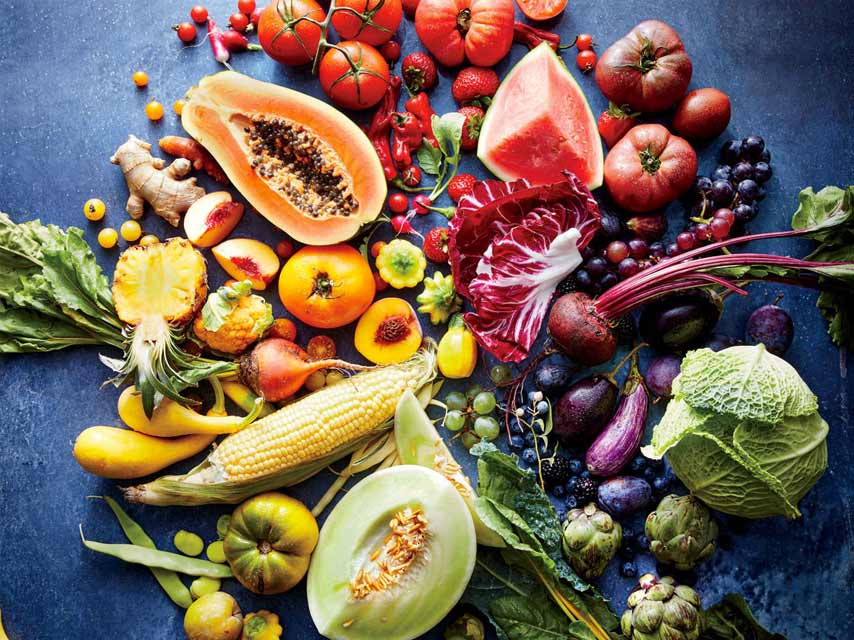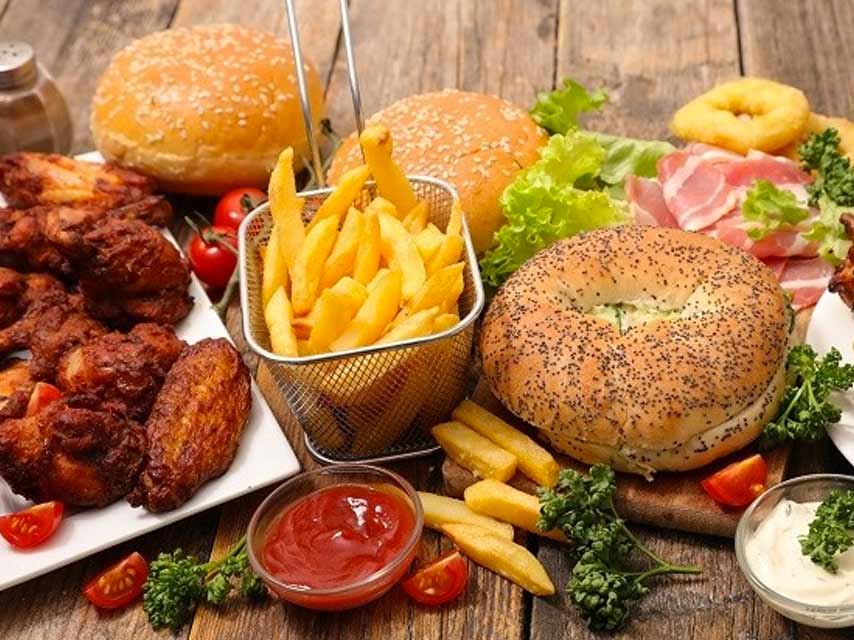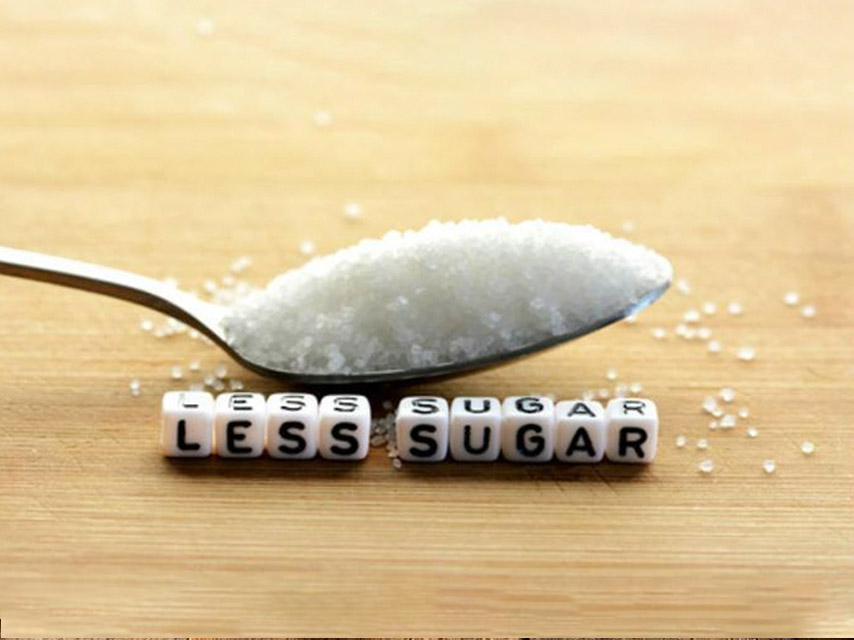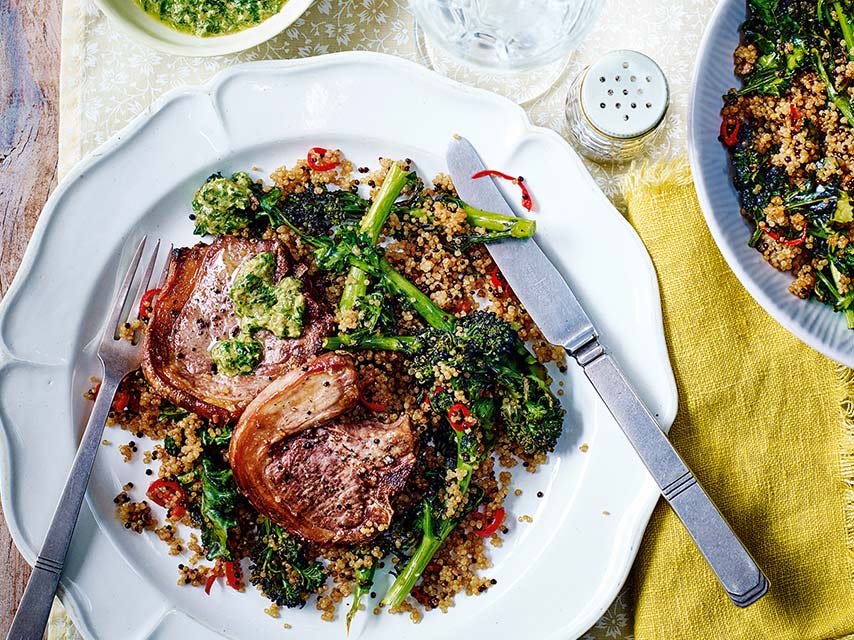5 Eating Tips to Better Health
To stay in good health we need to eat right.
This does not only mean eating the right amount of calories per day but also being able to balance the intake from each food group i.e. vegetables, fruits, grains, protein and dairy. Of course, eating alone is not enough for perfect health, there are other things in our life that are equally as important, like daily exercise, but for now we’ll focus on eating.

If we consume more calories than our body needs we’ll put on weight as everything that is not needed is stored as fat. It is the same if we consume less, we’ll lose weight. But again it all depends on what we consume. The thing is to eat a wide range of foods to make sure we’re getting a balanced diet and our body is getting all the nutrients that it needs.
The recommended calorie intake for men is 2500 calories a day and 2000 calories for women. Most people are usually consuming more or less the required daily calorie intake but the problem is not eating right. That is why there are people putting on a lot of weight but are sure they are consuming less than the required amount of calories.
Here are a few tips to help you balance your meals:
1. Consume more fibres and starchy carbohydrates

Food high in fibres and starchy carbohydrates should make up at least if not over a third of the food we eat. Foods that are high in starchy carbohydrates are potatoes, bread, rice, pasta and cereals. The thing is to opt for whole grain varieties such as wholewheat pasta, brown rice or potatoes with their skin, as most nutrients are found in the skin.
Unrefined foods contain more fibre than refined carbohydrates and they also help you stay full for longer. Try to include at least one starchy food in each meal. It is a misconception that starchy foods are fattening, they provide us with more carbohydrates than anything else which we need for energy.
We need to cut back on anything that increases calorie content while cooking such as oil on chips, butter on bread or other creamy sauce on pasta. These are the culprits that give a bad name to carbohydrates.
2. Increase your intake of fruits and vegetables

It is recommended that we eat at least 5 portions of fruits and vegetables daily but most of us don’t do it. If we plan well, we can all get our daily fruit and veg intake.
If you are not eating enough fruits and vegetables, the right time to start is now. It is much easier than it sounds to add to your daily food intake. You can chop a banana over your cereal and replace your snacks with a piece of fresh fruit.
For your drinks, rather than having 500ml coke, why not get a glass of fruit juice instead? Or even better, a smoothie!
It doesn’t matter if they are canned, dried, juiced or frozen, but it is best to eat them fresh. Keep an eye on seasonal fruits to make sure you get the most of them.
3. Eat less saturated fat

Our body needs fat to keep moving but we need to keep an eye on the amount and type of fat that we’re consuming. There are 2 main types of fat, saturated and unsaturated. Getting too much of saturated fat will harm our body as it increases the amount of cholesterol in the blood which in turn increases the risk of developing heart disease.
It is not advisable to have more than 30 grams of saturated fat per day for men. For women 20 grams is the daily limit and for kids under the age of 11, it is even lower but it’s important to know that a low fat diet is not recommended for kids under the age of 5.
Saturated fat can be found in foods like sausages, butter, cream, cakes, lard, pies, fatty cuts of meat, among others. Cut down on saturated fat and replace them with foods that contain unsaturated fats such as avocados, oily fish, vegetable oils and spreads.
For healthier options, use vegetable or olive oil instead of butter, lard or ghee. When having red meat, opt for lean cuts and remove any visible fat. Fat is high in energy and should be consumed in small amounts.
4. Cut down on sugar

A high intake of sugary foods increases the risk of obesity as well as tooth decay. Sugary foods and drinks are often high in energy and if consumed in large quantities daily, will contribute to weight gain and may also cause tooth decay if consumed in between meals.
Processed sugar is found in many packaged foods and drinks. It is recommended to cut down on foods that contain sugar, some of them being:
- Sugary fizzy drinks
- Cakes
- Biscuits
- Pastries and puddings
- Sweet and chocolate
Always make sure to check food labels to know how much sugar the foods contain. Anything over 22 grams per 100 grams means the food is high in sugar.
5. Drink lots of water

It is important to stay hydrated at all times and is recommended to drink 6 to 8 glasses of fluids daily which is equivalent to 1.5 to 2 litres. We also get some fluids from the food that we consume.
Opt for water, tea, coffee and other non-alcoholic drinks rather than sugary, fizzy drinks which are high in calories. During hot weather it is important to drink more as we tend to lose more water than during colder weather via sweating. Also keep your water bottle handy while exercising.
Eating well for a better life usually requires us to do some minor changes to our daily routine. If we make the changes one step at a time, it won’t take long before we can enjoy better health.
You may also like
Comments



 French
French


